Warehousing and logistics often emerge as primary expenses for ecommerce brands as they expand, surpassing the capacity to handle all orders in-house. Over the past few years, the Third-Party Logistics (3PL) industry has skyrocketed to nearly $1.9 trillion, mirroring the exponential growth of the ecommerce sector and exhibiting no signs of slowing down.
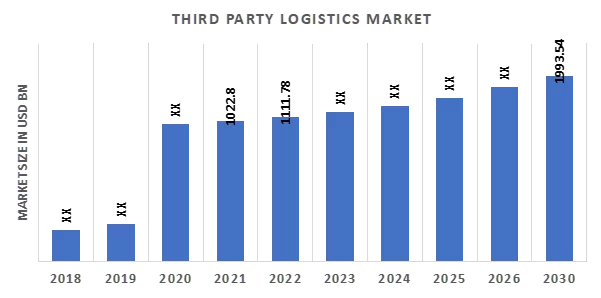
Surprisingly, many retailers and ecommerce ventures fail to leverage the full spectrum of features and benefits that a 3PL can offer. In this comprehensive guide, I’ll delve into the intricacies of utilizing a 3PL partner for ecommerce fulfillment, exploring its advantages, drawbacks, and providing practical insights on integrating 3PL fulfillment into your order management system.
Understanding the Essence of a 3PL
A 3PL, or Third-Party Logistics, entails outsourcing logistics operations to an external company. Typically, this refers to entrusting a warehouse or fulfillment center with various tasks like handling, storing, picking, packing, and other warehouse management operations. However, the term 3PL can also encompass other external partners such as shipping companies.
These entities vary in size and scope. Some are mammoth corporations offering comprehensive end-to-end services encompassing storage, fulfillment, returns, quality checks, and virtually every aspect of logistics. Conversely, smaller 3PLs might offer limited services, yet most possess the capability to integrate seamlessly with your order and inventory management systems for effortless business incorporation.
3PL for Ecommerce Fulfillment: A Closer Look
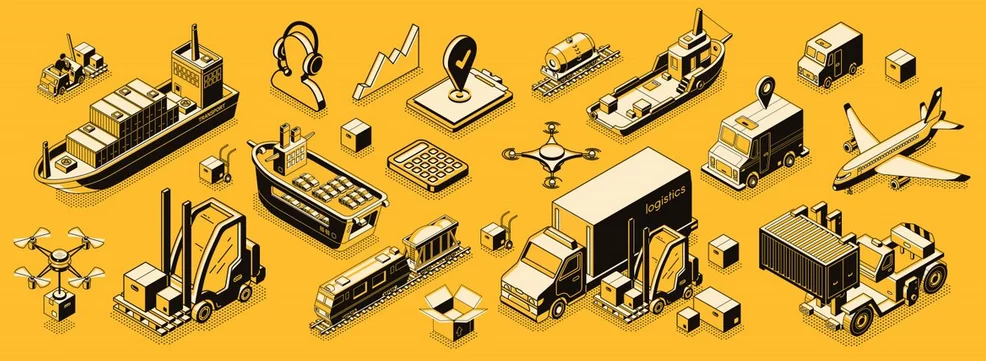
Ecommerce companies often reach a tipping point where managing logistics internally becomes overwhelming. This is where the role of a 3PL comes into play. Beyond just storing goods, 3PLs streamline the entire fulfillment process, from inventory management to picking, packing, shipping, and even handling returns.
Advantages of a 3PL in Detail:
- Expertise: The specialized knowledge and experience of 3PLs in logistics and fulfillment ensure streamlined operations. They’re adept at optimizing processes, reducing errors, and enhancing efficiency.
- Cost Efficiency: While there might be initial setup costs, 3PLs can ultimately save money by reducing overheads in warehouse management, staffing, and shipping logistics. Their economies of scale often lead to cost savings in the long run.
- Scalability and Flexibility: Adapting to fluctuating order volumes becomes seamless with a 3PL. Whether it’s a sudden surge in orders during peak seasons or handling slow periods, 3PLs offer the flexibility to scale operations accordingly.
- Focus on Core Business Functions: Outsourcing logistics allows businesses to redirect their focus on core competencies such as product development, marketing strategies, and customer engagement, driving overall growth.
- Enhanced Customer Satisfaction: With quicker order processing, efficient shipping, and seamless return management, 3PLs contribute significantly to a positive customer experience, fostering brand loyalty.
Learn how technology favors inventory management here.
Navigating the Challenges of Using a 3PL:
- Costs and Budgeting: Initial setup expenses, ongoing service charges, and the complexity of fee structures can pose challenges. Understanding these costs upfront and ensuring they align with your budget is crucial.
- Control and Visibility: While outsourcing logistics to a 3PL streamlines operations, it may reduce the visibility and control you have over certain aspects of your supply chain. Ensuring a balance between control and efficiency is essential.
- Integration and Compatibility: Ensuring seamless integration of your systems with the 3PL’s infrastructure is vital for a smooth operation. Compatibility issues or lack of integration could lead to disruptions in data flow and communication.
Core Services by 3PLs:
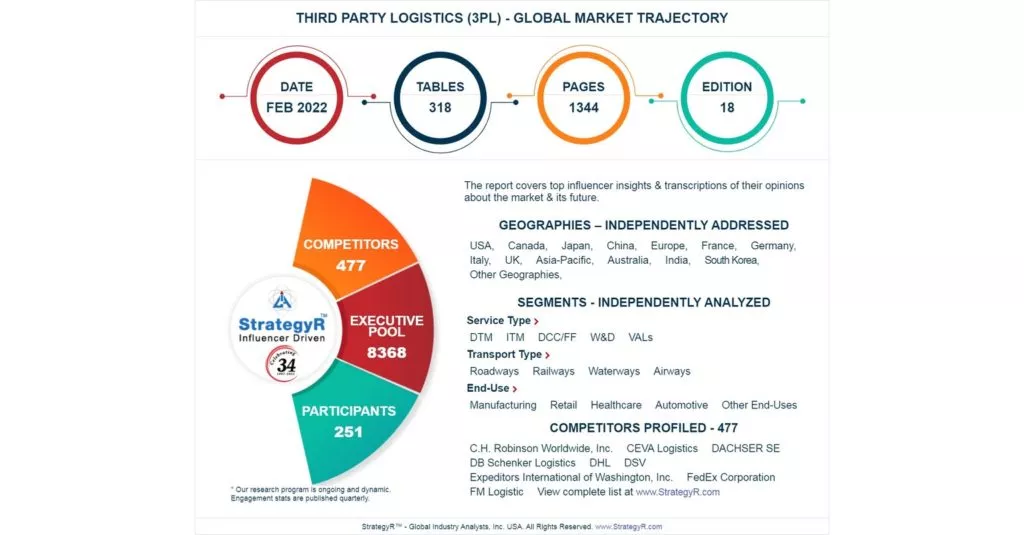
Third Party Logistics (3PL) – FEB 2022 Report
- Freight and Shipping Management: This service involves the acceptance and management of incoming freight shipments. A proficient 3PL will coordinate with manufacturers or freight forwarders to plan restocking and manage various shipping options and times for customer orders.
- Warehousing: The fundamental service provided by 3PLs involves storing and managing inventory in warehouses or distribution centers. They accommodate different product types, including specialized requirements such as frozen or fragile goods.
- Ecommerce Order Fulfillment: The processing, picking, packing, and shipping of products to customers comprise the primary aspects of order fulfillment. Seamless integration with order management systems allows for direct order processing from the 3PL.
- Inventory Management: Tracking and monitoring inventory in real-time, along with providing statistics and insights into stock performance, assists in forecasting order volumes and managing stock effectively.
- Picking, Packing, and Labeling: For 3PLs handling customer shipments along with storage, these services involve managing the entire process of preparing orders for shipping, ensuring accurate packing and labeling according to different sales channels or specific requirements.
- Return Management (Reverse Logistics): A critical but often overlooked aspect of ecommerce, 3PLs manage product returns efficiently, including inspecting returned items, determining whether they can be restocked, and handling proper disposal or recycling as needed.
Additional Services by Some 3PLs
- Quality Inspection (QI): Ensuring product quality and consistency through thorough inspections, either during returns or as part of the manufacturing process.
- FBA Prep (for Amazon Fulfillment): Preparing products to meet the specific packaging and labeling requirements for Amazon FBA.
- Amazon Prime Deliveries: For businesses utilizing Seller Fulfilled Prime, allowing 3PLs to manage Amazon orders, provided they meet Amazon’s stringent shipping and returns policies.
- Multi-channel Fulfillment: Catering to businesses selling products across various channels, necessitating different packaging and storage options while maintaining a consolidated view of inventory.
- Freight and Transportation: Some 3PLs offer freight forwarding services, handling international shipping and managing customs and taxes, especially for businesses dealing with cross-border logistics.
- Multiple Locations: Larger 3PLs often operate warehouses in multiple locations, enabling faster shipments to customers or reducing international shipping costs.
- Other Services (Assembly, Kitting, Consulting, Packaging Design): Additional specialized services may include product assembly, kitting or bundling, consultancy on logistics optimization, and packaging design.
Top 3PL Companies in 2024:
1. ShipBob
Best for Fast Global Fulfillment
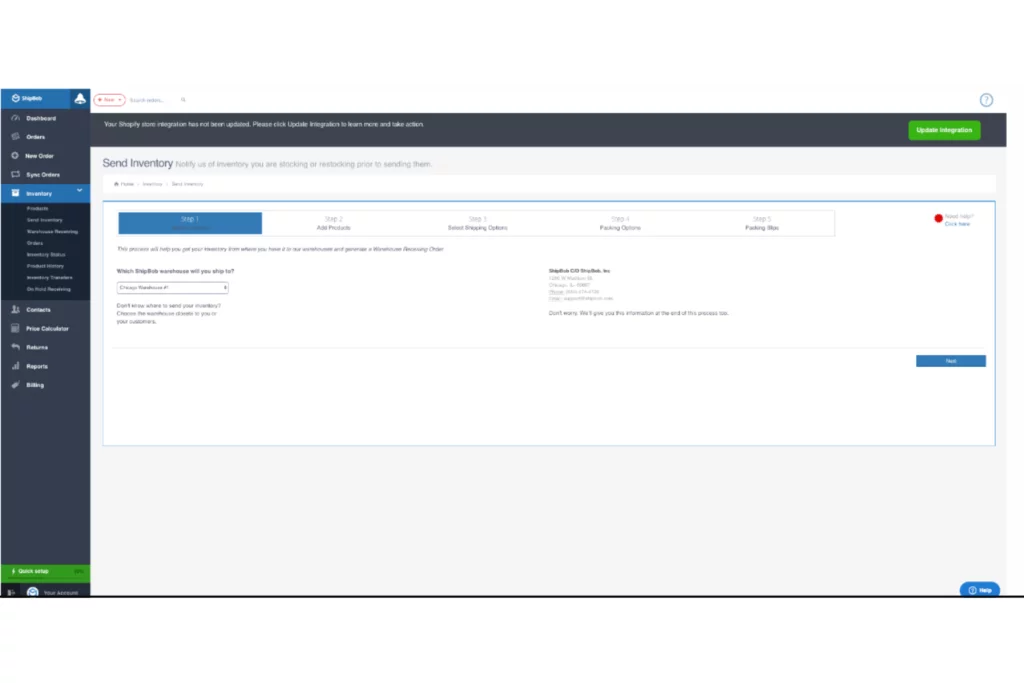
ShipBob seamlessly aids e-commerce businesses in shipping inventory to its fulfillment centers, specializing in fast global fulfillment. As a fulfillment service provider, ShipBob offers an array of logistics solutions tailored for e-commerce operations.
Why ShipBob:
ShipBob stands out for its comprehensive fulfillment services addressing various aspects of the e-commerce supply chain. This includes receiving and storing inventory, efficient order picking and packing, negotiation of shipping rates, and adept management of expedited and standard deliveries. Leveraging distributed inventory capabilities strategically places goods across fulfillment centers, optimizing delivery times and reducing shipping costs.
Standout Services and Integrations:
- Warehouse Management System (WMS): Tailored for businesses with their warehousing facilities, offering advanced software for streamlined operations.
- Managed Freight Program: Streamlining the shipping process from manufacturers to ShipBob’s fulfillment centers.
Integrations: Shopify, Klaviyo, Recharge, Amazon, BigCommerce, Ebay, Magento, Brightpearl, Yotpo, Netsuite.
Pros:
- Easy integration with e-commerce platforms
- 2-day delivery option
- Fast and accurate order fulfillment
Cons:
- Limitations for B2B and wholesale orders
- High shipping costs
2. C.H. Robinson
Best for Shipping Across Railway Networks
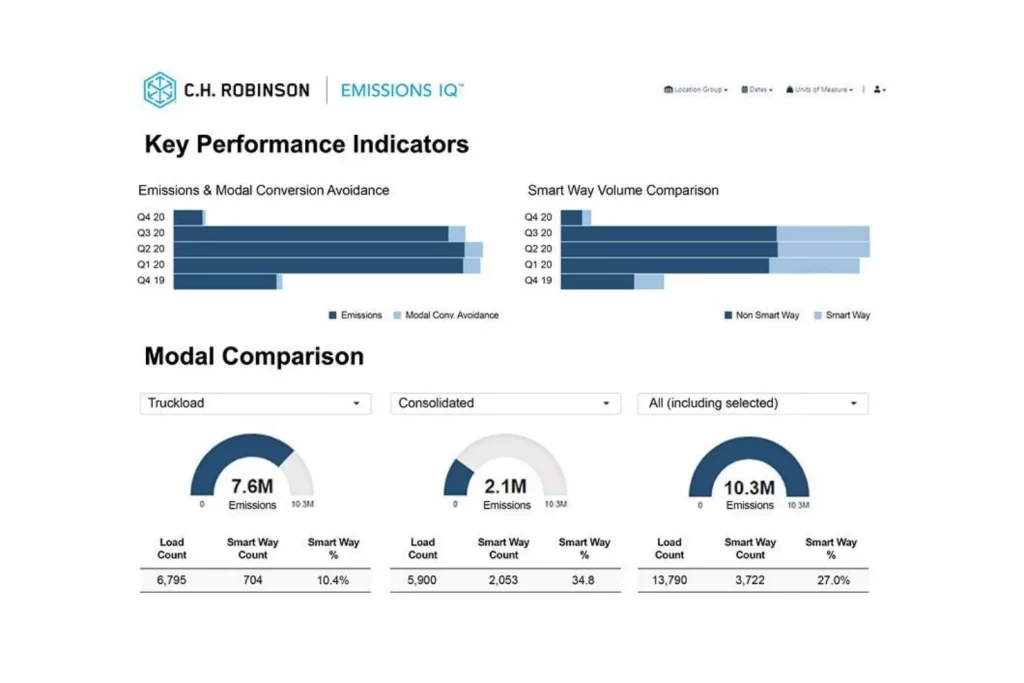
C.H. Robinson, a major 3PL logistics provider, excels in shipping products across railway networks, offering a unique solution in the logistics landscape.
Why C.H. Robinson:
C.H. Robinson stands out for its capability to ship products via railway networks, providing an effective solution, particularly for businesses dealing with large-sized products. The company offers a complete logistics service and tools suite, including supply chain management solutions.
Standout Services and Integrations:
- Advisory and Policy Experts: Assisting with customs clearance, compliance with changes, issue identification, and risk mitigation.
- Flexible Warehousing Distribution: Tailored solutions for fulfillment, distribution, and transportation.
Integrations: Native connections with business systems, including Banyan Technology, BlueYonder, Creative Logistics Solutions, e2open, FreightPop, MercuryGate, Microsoft Dynamics 365, NetSuite, SAP, ShipERP, and other software options.
Pros:
- Accommodates business needs
- Significant intermodal rail shipping
- Allows unplanned, last-minute shipments
Cons:
- Needs better product handling
- Customer support needs work
3. XPO Logistics
Best for Coast-to-Coast Network
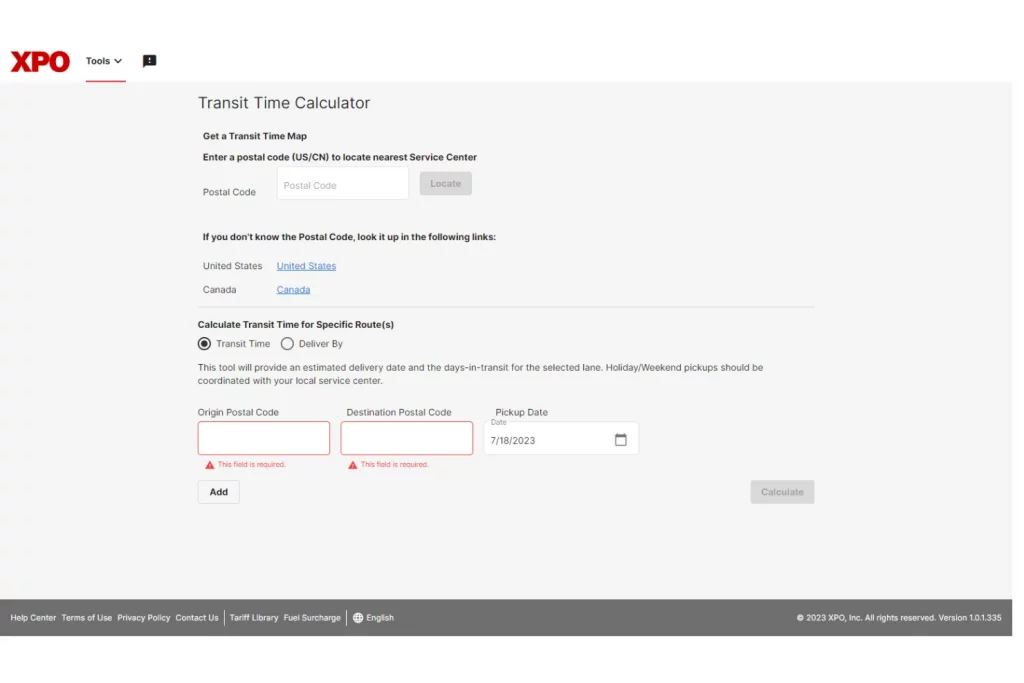
XPO Logistics offers an extensive coast-to-coast freight network throughout North America, providing e-commerce businesses with reliable logistics solutions.
Why XPO Logistics:
XPO Logistics stands out with its expansive fleet, featuring over 8,000 tractors, 27,000 trailers, and 13,000 drivers. This allows them to cover 99% of the country from coast-to-coast, managing any shipment volume with efficiency.
Standout Services and Integrations:
- Customized Solutions: Monitors shipments, manages pickups and deliveries, and provides real-time alerts.
- Exclusive-Use Service: Reduces cargo handling, protecting it from damage and guaranteeing space in private trailers.
Integrations: Standard shipping systems and e-commerce platforms like Clarity Venture, Cleo, ConnectPointz, Go3g.com, Happy Returns, Insight Works, NetSuite, Okta, ShipEngine, TrackingMore, and other software options. XPO Logistics also offers an API for seamless integration with existing applications.
Pros:
- Guaranteed deliveries
- Easy to schedule deliveries
- Excellent support
Cons:
- Tracking shipments can be slow
- System can be buggy
4. UPS Supply Chain Solutions
Best for Managing Supply Chains
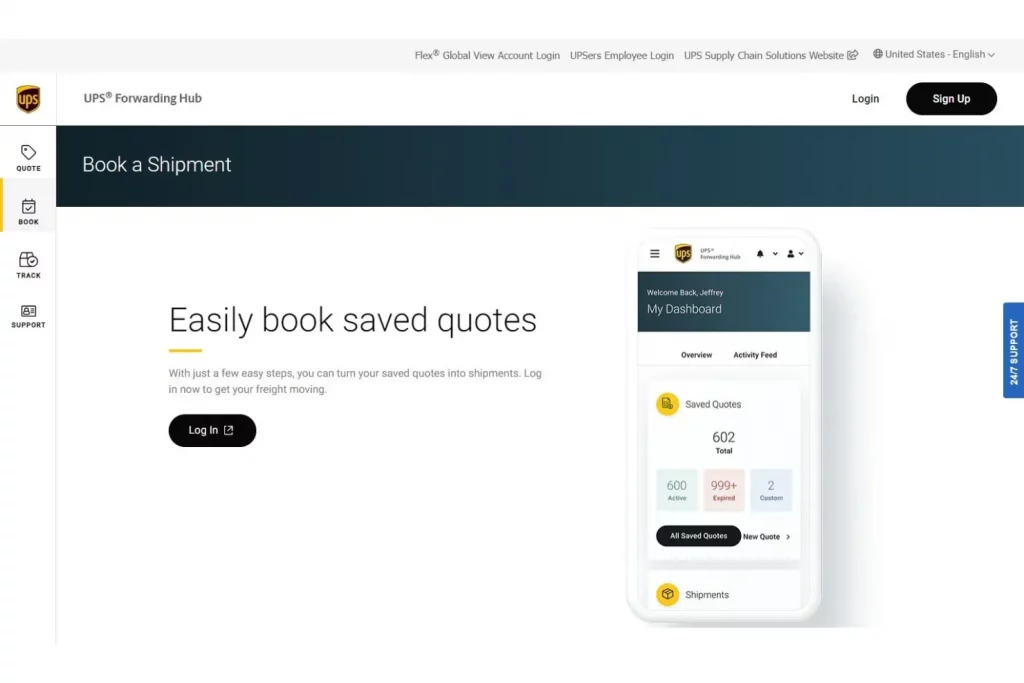
UPS Supply Chain Solutions offers comprehensive logistics services beyond package delivery, specifically tailored to assist online stores in managing their supply chains.
Why UPS Supply Chain Solutions:
Recognized for providing value-added services, UPS Supply Chain Solutions excels in helping businesses manage supply chains efficiently. The company collaborates closely with businesses, addressing the complexity of supply chains by managing the flow of goods from receiving to storage, order processing, and product shipping. Leveraging a global network of distribution centers, advanced technology, and logistics expertise, UPS Supply Chain Solutions stands out in the industry.
Standout Services and Integrations:
- Insurance Services: Protects shipments, business reputation, and finances by settling claims when necessary.
- Customs Brokerage: Assists in avoiding clearance issues, customs complexities, and service interruptions.
Integrations: Agiliron, canary7, Cleo, ClickPost, Coyote Logistics, Docinfusion, IvyPanda, NetSuite, Shipster, Shiptheory, and other software options.
Pros:
- Good customer support
- Excellent tracking features
- Ships free boxes and supplies
Cons:
- Steep learning curve
- Sometimes doesn’t honor shipping quotes
5. J.B. Hunt Transport Services
Best for Scaling Shipping Processes
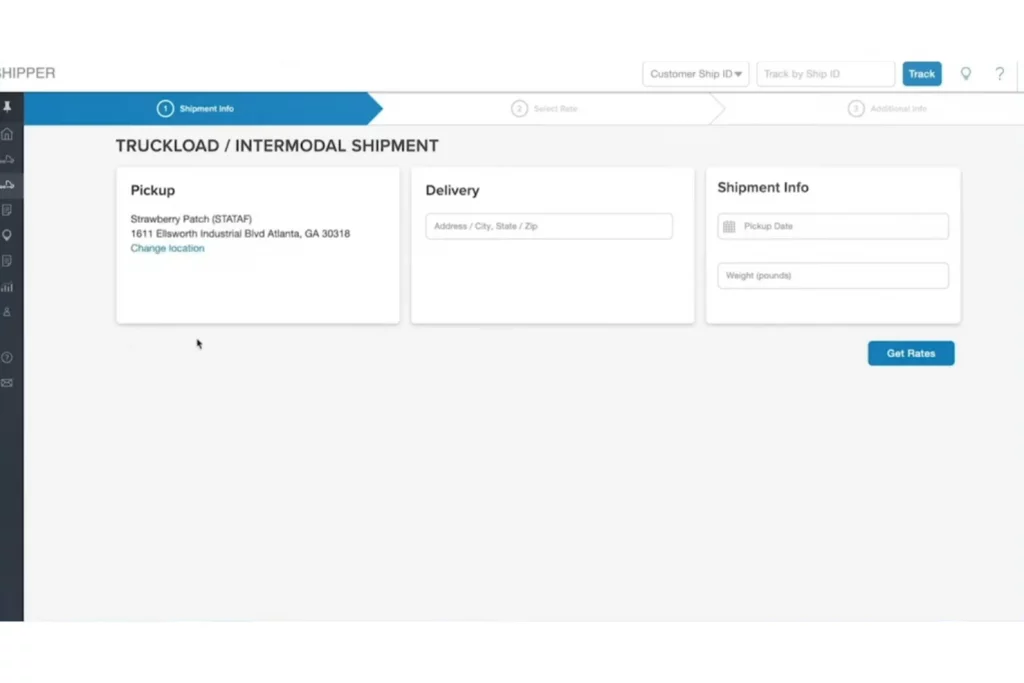
J.B. Hunt Transport Services assists growing e-commerce businesses in scaling their shipping processes, offering flexibility and customization in solutions.
Why J.B. Hunt Transport Services:
Recognizing the need for 3PL support during business growth, J.B. Hunt Transport Services stands out for its ability to handle diverse shipping needs. The company offers various freight modes, including less-than-truckload (LTL), intermodal, specialty shipments, and more.
Standout Services:
- Dedicated Contract Services: Utilizes a dedicated fleet for consistent capacity, featuring branded equipment and drivers with your logo.
- Final Mile Services: Direct delivery of products to customers’ homes.
Pros:
- Can handle complex supply chains
- Temperature-controlled shipping
- Works well with small businesses
Cons:
- Sometimes doesn’t provide precise delivery times
- Customer service needs work
6. DHL Supply Chain
Best for International Deliveries
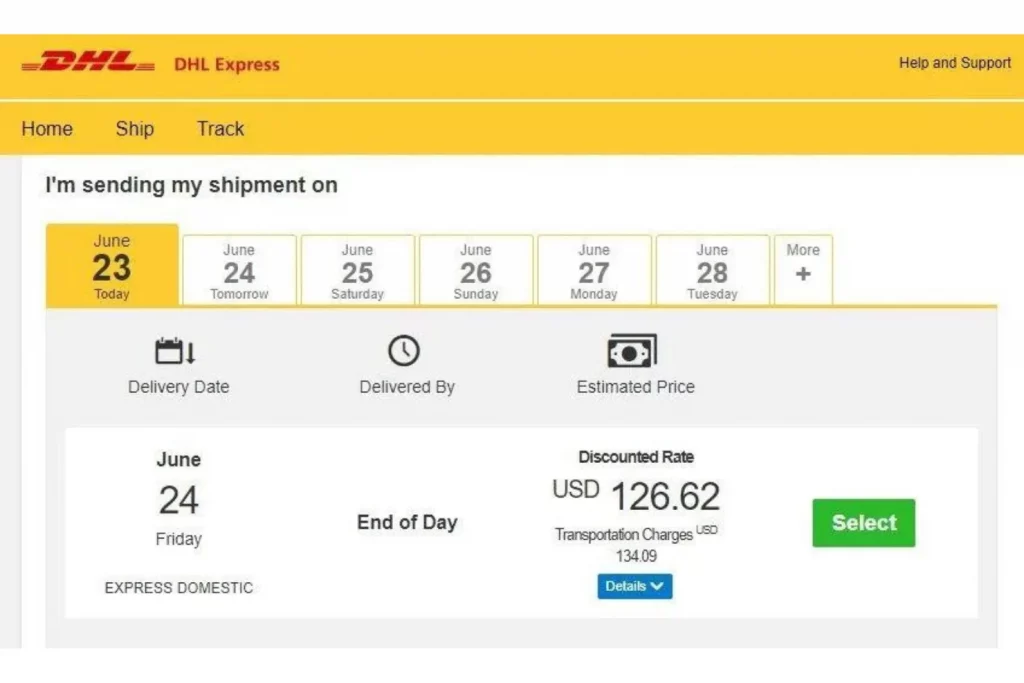
DHL Supply Chain specializes in facilitating international deliveries for e-commerce merchants, offering a global logistics solution.
Why DHL Supply Chain:
Highlighted for its global logistics capabilities, DHL Supply Chain is a prominent player in the international 3PL industry. Operating in over 220 countries, the company simplifies global logistics services, supplier administration, and customer touchpoint management.
Standout Services and Integrations:
- Reverse Logistics Services: End-to-end processes for returns management and product recalls.
- Warehouse Management System: Provides tools for inventory control, automated replenishment, order optimization, and more.
Integrations: Adobe Commerce, AfterShip, Malvern Systems, Pacejet, PrestaShop, ShipStation, ShipWorks, Shopify, Soapbox, WooCommerce, and other software options.
Pros:
- Fast product delivery
- Immediate tracking details
- Easy shipment creation
Cons:
- Isn’t suitable for smaller businesses
- Sessions can expire quickly
7. Kuehne + Nagel
Best for Combining Sea and Air Logistics
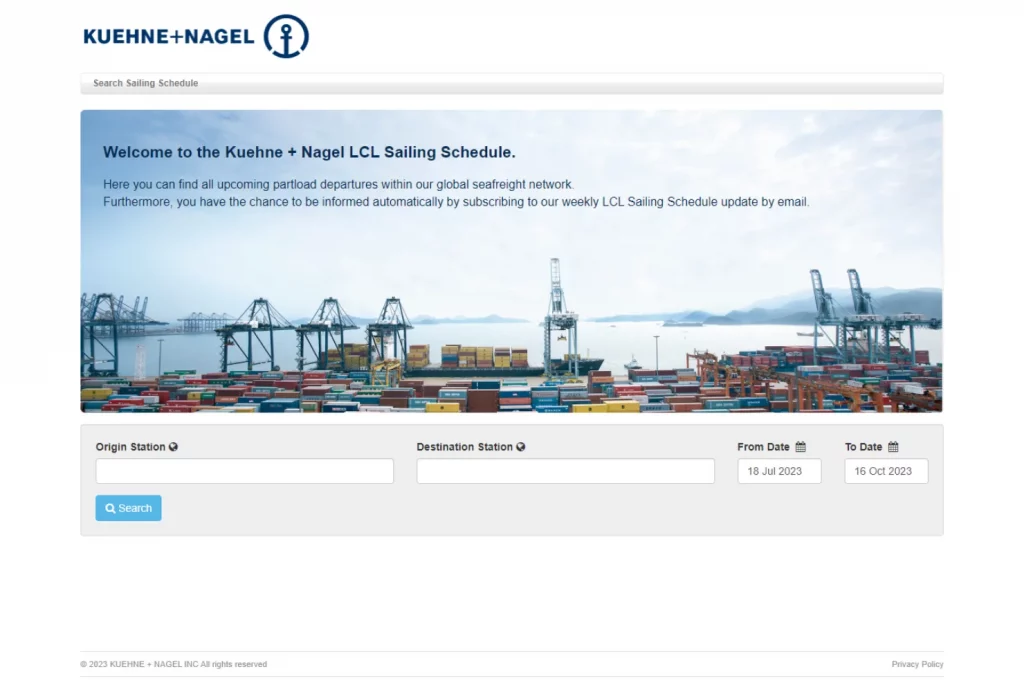
Kuehne + Nagel aids e-commerce brands in reducing costs and saving time by seamlessly combining sea and air logistics.
Why Kuehne + Nagel:
For businesses seeking efficient long-haul shipments and carbon emission reduction, Kuehne + Nagel provides a unique Sea-Air feature. This innovative service synchronizes air and sea freight, leveraging predictive analytics for effective shipment planning and execution.
Standout Services and Integrations:
- Order Management Capabilities: Manages rewards and risks in global supply chains, ensuring smooth product travel to international markets.
- Consulting Services: Comprehensive support to transform data into actionable insights, along with a suite of digital supply chain tools.
Integrations: AfterShip, Cleo, iScala, nChannel, ShipperHQ, and an API for custom integrations.
Pros:
- Sustainable shipping processes
- Leading freight technology software
- Extensive knowledge base
Cons:
- Small number of integrations
- Customer support needs work
8. Expeditors International
Best for Shipping High-Value Products
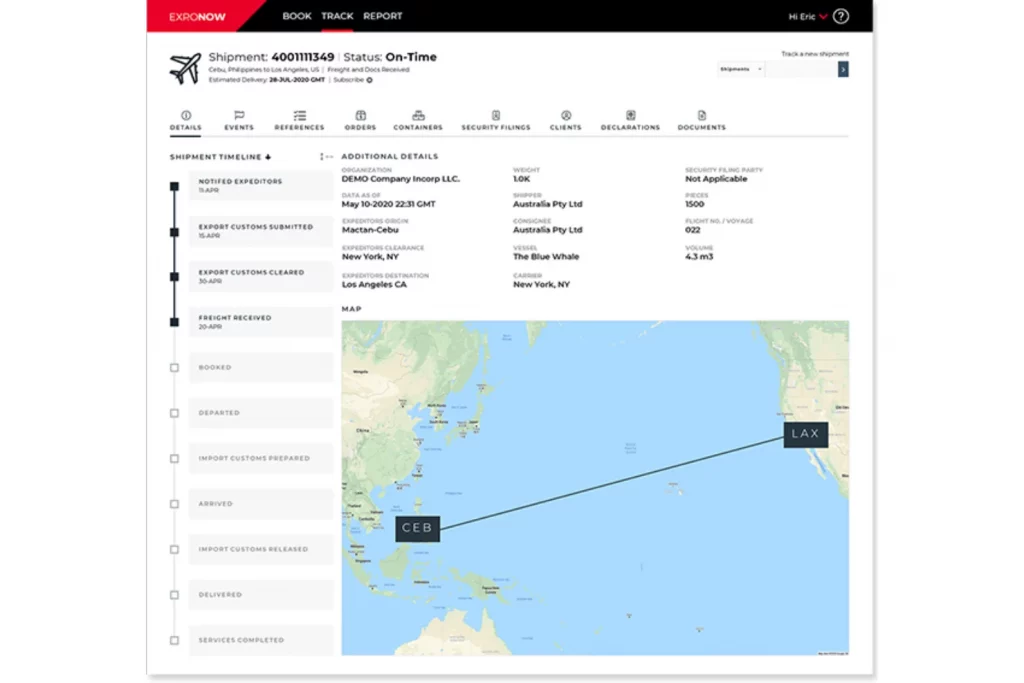
Expeditors International specializes in catering to e-commerce businesses with a focus on shipping high-value products, offering protective measures and specialized treatment.
Why Expeditors International:
Chosen for its proficiency in handling high-value products during shipping, Expeditors International ensures the secure delivery of such items. The company employs white-glove treatment and provides temperature-controlled delivery options when necessary, offering flexibility and reliability.
Standout Services and Integrations:
- Data Analytics Tools: Built-in tools for comprehensive data analytics, offering insights from the point of order to final delivery.
- Living Model Service: Creates a twin of your supply chain, facilitating decision-making based on specific conditions.
Integrations: Utilizes APIs, traditional EDI, and various methods to connect internal business systems and service providers.
Pros:
- Present in over 300 locations worldwide
- Same-day delivery options
- Bulk shipping capabilities
Cons:
- Pricing details aren’t transparent
- No native integrations
9. Ryder Supply Chain Solutions
Best for Reverse Logistics
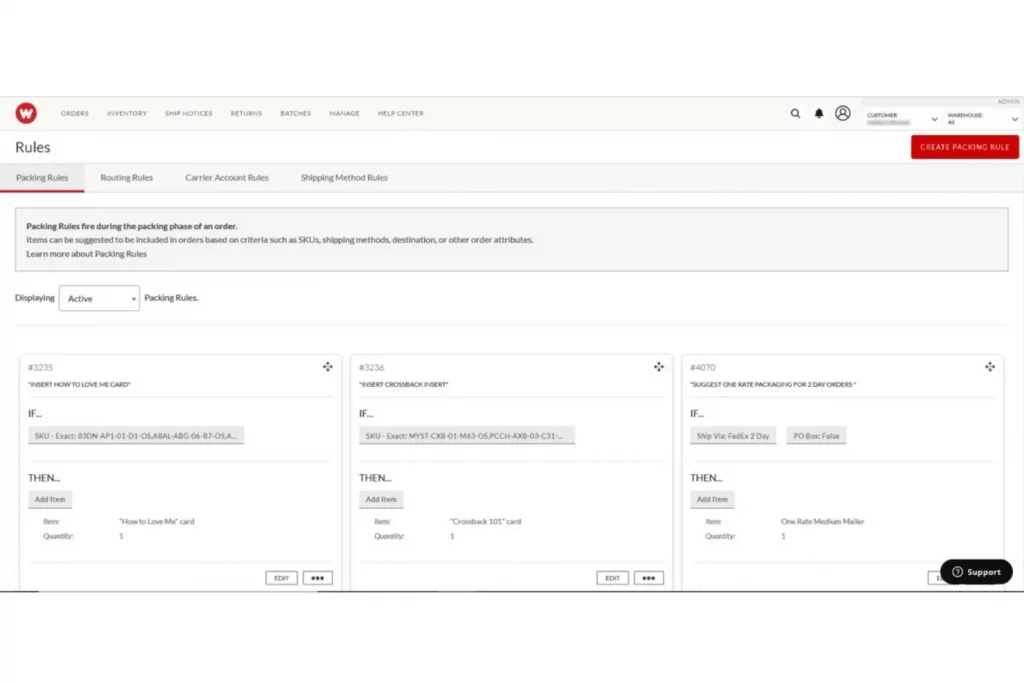
Ryder Supply Chain Solutions excels in providing reliable reverse logistics capabilities, assisting e-commerce brands in managing returns efficiently.
Why Ryder Supply Chain Solutions:
Recognizing the significance of reverse fulfillment for e-commerce businesses, Ryder Supply Chain Solutions stands out by efficiently managing the return process. The company offers multiple reverse logistics solutions, ensuring streamlined returns and effective warehouse management.
Standout Services and Integrations:
- Customs Clearance Functions: Provides visibility into supply chains and ensures compliance with trade regulations.
- Fleet Management Services: Assists in managing private fleets efficiently, offering access to various transportation solutions.
Integrations: Connects with top business management systems through the RyderEcommerce platform, enabling seamless integration with various business applications.
Pros:
- White-glove product delivery
- Custom warehousing solutions
- Sells and rents trucks
Cons:
- No temperature-controlled shipping
- Steep learning curve
10. FedEx Supply Chain
Best for Large Businesses
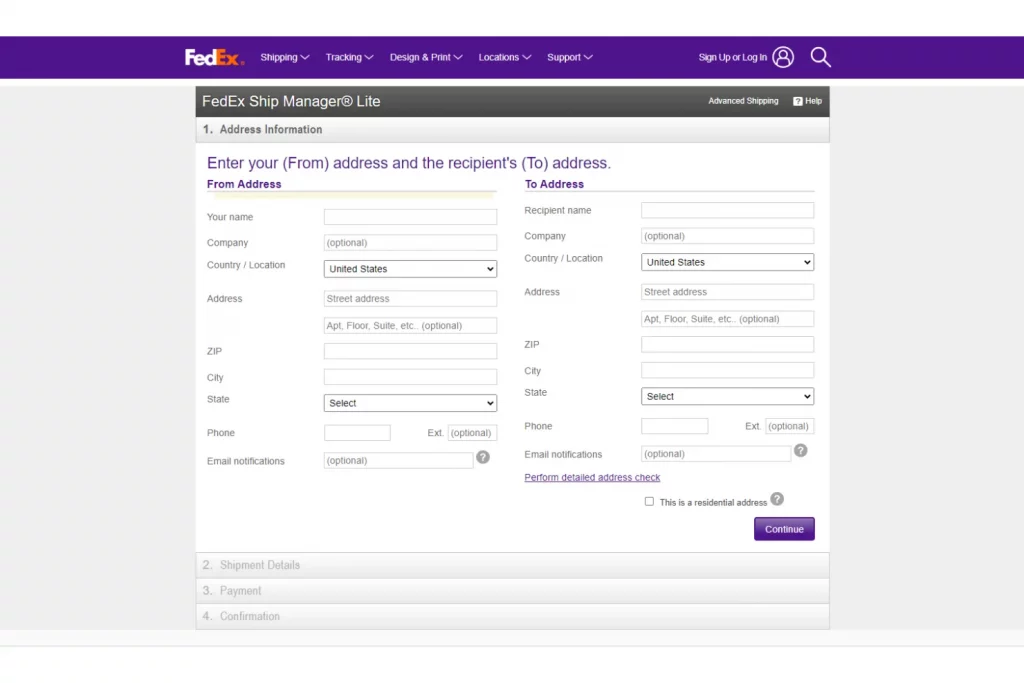
FedEx Supply Chain, a major carrier in North America, owns and operates a network of warehouses, offering services tailored for large organizations.
Why FedEx Supply Chain:
Included for its extensive warehouse network designed for large e-commerce businesses, FedEx Supply Chain provides a multinational 3PL approach. The company supports online stores with an integrated solution covering distribution, fulfillment, packaging, and returns.
Standout Services and Integrations:
- Supply Chain Consulting: Expert evaluation and growth plan development by FedEx professionals.
- Transportation Management Services: Streamlines shipping processes, freeing up time and resources.
Integrations: Provides an API for integrating with online stores, optimizing shipping processes through a multichannel strategy.
Pros:
- Helps identify and fix product issues
- Real-time location tracking
- Provides customized packaging
Cons:
- Some delivery issues
- Integrating with business systems is challenging
Conclusion:
Effectively integrating a 3PL into your ecommerce operations demands careful planning, a comprehensive grasp of business requirements, and the strategic alignment with a trusted partner. This isn’t merely about outsourcing logistics; it’s about cultivating a collaborative partnership that optimizes efficiency, propels business growth, and elevates customer satisfaction.
FAQs on 3PLs:
What should I consider while choosing a suitable 3PL for my ecommerce venture?
Factors such as your specific business requirements, budget, software integrations, and the 3PL’s reputation should be key considerations. Evaluate their core services, additional offerings, and their ability to align with your operational needs.
What are the typical services offered by 3PLs, and how do they contribute to my business?
3PLs commonly provide freight and shipping management, warehousing, order fulfillment, inventory management, and return logistics. These services contribute to smoother operations, optimized inventory control, and efficient order processing, enhancing customer satisfaction.
How can a 3PL’s integrated systems benefit my ecommerce business?
Integration with your inventory and order management systems offers real-time visibility into stock levels, improves order accuracy, and enables seamless order processing. This streamlined approach minimizes errors and enhances overall operational efficiency.
Are there any challenges associated with 3PL integration, and how can they be addressed?
Challenges such as complex cost structures, reduced control over certain operations, or training requirements for your team might arise. Open communication, clear expectations, and choosing a 3PL aligned with your business goals can help mitigate these challenges.
Can a 3PL assist in managing specialized requirements, such as international shipping or unique product storage needs?
Yes, many 3PLs offer specialized services tailored to specific needs like international shipping, temperature-controlled storage, or compliance with specific marketplace requirements like Amazon FBA, catering to diverse ecommerce demands.



